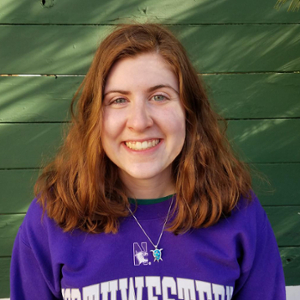My Study Group was beyond amazing. It was the epitome of learning and doing. It helped me do really well on my quizzes and homework, and the group as a whole really bonded!”
Marina Siqueira, class of 2022
 Peer-Guided Study Groups help you stay on track in challenging courses. Study Group students come together weekly throughout the quarter, in small, comfortable learning communities, to boost their learning and support their course success. Keep reading for registration information.
Peer-Guided Study Groups help you stay on track in challenging courses. Study Group students come together weekly throughout the quarter, in small, comfortable learning communities, to boost their learning and support their course success. Keep reading for registration information.
Students enrolled in an array of first-and second-year courses have the option of enrolling in a Peer-Guided Study Group alongside the course. Study Group participants meet weekly in groups of about 5 to 7 with a peer facilitator — another student who has taken and done well in the course (or, in some cases, an equivalent course). In the two-hour meetings, students talk through key concepts from the course, ask questions on points of confusion and help answer one another’s questions, and work through practice problems or exercises together. The Study Groups are highly collaborative, comfortable environments where undergraduates can learn from one another and help one another succeed.

My Study Group was beyond amazing. It was the epitome of learning and doing. It helped me do really well on my quizzes and homework, and the group as a whole really bonded!”
Marina Siqueira, class of 2022
The study group definitely helped me stay focused on the course, and it helped me figure out my weak points and then ask questions to solidify my understanding.”


The Study Group made a massive lecture class feel more personable, by giving us a smaller venue where we could talk about the concepts and our own reactions to the material.”
I was able to ask my questions in a non-judgmental group setting, which allowed me to really continue to ask until I was certain I understood the concepts.”


Talking to other students in the Study Group, and working through problems together, was a really effective way for me to understand the material.”
Peer-Guided Study Groups are available for the following courses:
Any student enrolled in the accompanying course can join a Study Group. Students who are looking for a supportive, community-oriented learning experience and some additional support with the course may find the Study Groups particularly useful. If you are enrolled in one of the supported courses, you will receive information on registration at the beginning of the quarter.
Registration for Spring Quarter 2024 study groups is through CAESAR and begins on Wednesday, March 27. Please note that the registration window opens at 12:00am midnight between Tuesday and Wednesday.
Study Groups will begin meeting Monday, April 1 and all sessions will be held in-person. Study Groups end Sunday, June 2.
Participants enjoy being part of a small, friendly learning community within large, rigorous courses. Having a set time to focus on the course material each week also helps participants stay on track in the course. Program evaluations show that students participating in small-group, peer-led study at Northwestern tend to find that their confidence in the course material increases
A large body of research points to many benefits of peer-based learning, including an enhanced course experience, deeper learning, and improved grade outcomes. We have also studied the impact of these programs at Northwestern – learn more about our program evaluation.
We recruit for peer leaders each spring. We look for students who have a strong command of the subject (although straight A's are not necessary), and who have good interpersonal skills and a desire to help others succeed. See our peer leader page for details.
For more information, please contact us.